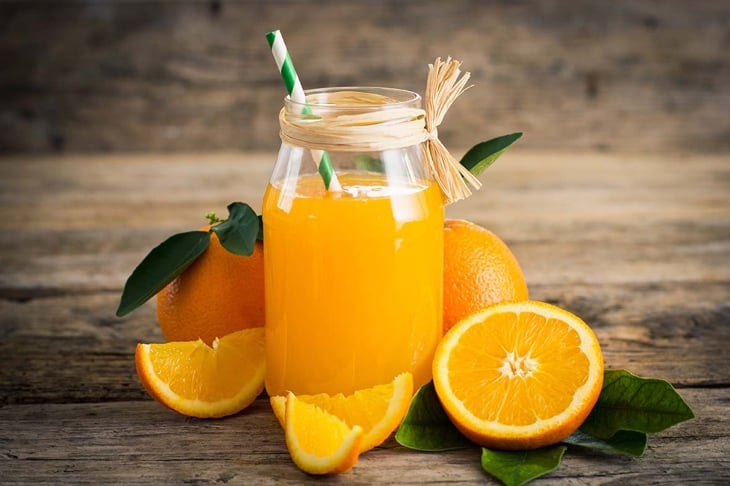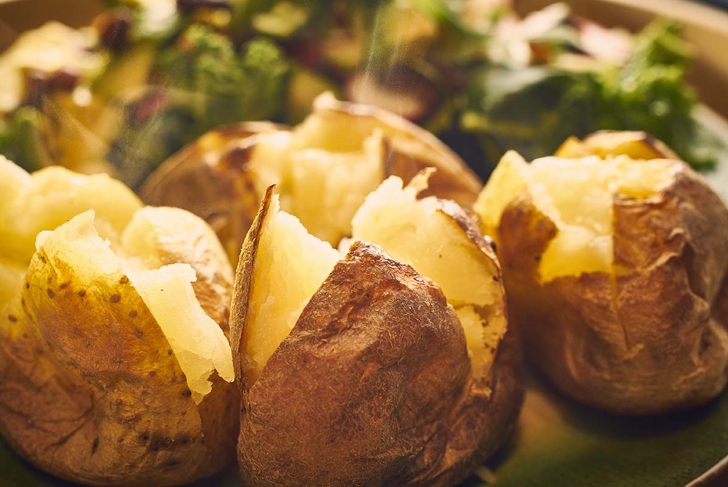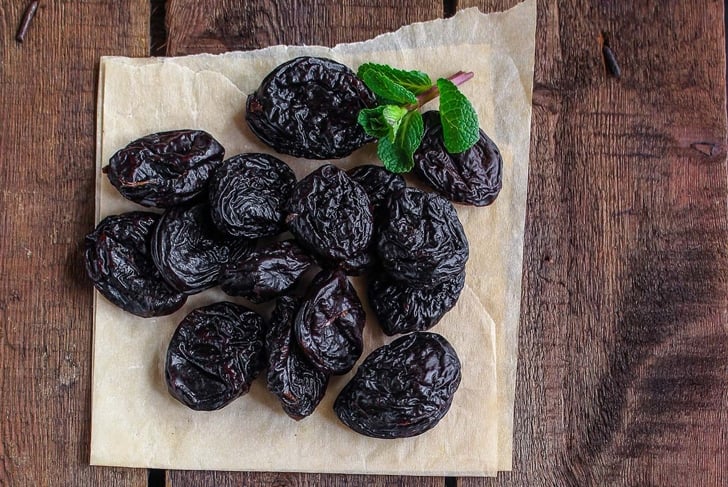10 High-Potassium Foods That Won’t Drive You Bananas
Getting potassium from your diet is easy and delicious

Potassium is a mineral that’s essential to your well-being. Having enough potassium helps your cells maintain a normal level of fluid, promotes healthy blood pressure, and supports muscle contraction. Not having enough potassium can cause muscle spasms or weakness, constipation, fatigue, and more.
Because many amazing foods—not just bananas—have a high potassium content, it can be easy to get your daily requirement from your diet. Let’s take a look at 10 of these high-potassium foods.
Oranges

Serve yourself some sunshine—one 250 mL (1 cup) serving of orange juice has 503 mg of potassium. Orange juice is a refreshing way to get some of the potassium you need. Juicing your own oranges will give you maximum freshness and fantastic flavor.
Alternatively, you can look for 100 percent pure orange juice that has no added sugar and is not from concentrate. Try it in a smoothie with your favorite fruits and vegetables for even more nutritional benefits.
Acorn and butternut squash

These two winter squash favorites are loaded with potassium. Just a cup of acorn squash will give you 896 mg, while you can expect a cup of butternut squash to provide 583 mg. Try using butternut squash in place of rice or pasta. There are all kinds of great meals you can make with this squash, including simple but satisfying Butternut Squash Soup.
Potato

Baked potatoes are a great addition to just about any meal. They can be prepared in your oven, air fryer, slow cooker, or microwave, and just one baked potato will provide you with 925 mg of potassium. This is significant because the recommended daily intake for women over 19 who aren’t pregnant or lactating is 2,600 mg. Pregnant or lactating women should aim for about 2,500 mg to 2,900 mg per day. The recommended daily intake for men 19 and over is 3,400 mg.
For adolescents the intake is slightly different. It’s recommended that women between 14 and 18 should get about 2,300 mg of potassium per day. Men in the same age group need about 3,000 mg per day. One baked potato will go a long way in reaching those goals.
Spinach

Spinach provides amazing versatility to your meals. You can use it in curries, soups, stews, salads, and sandwiches. Add spinach to your pasta dishes to make them go from good to great! Switch out the lettuce in recipes and salads for spinach—you’ll get 420 mg of potassium per 1/2 cup (125 mL). What’s not to love?
Beans

A half cup of cooked dried beans or peas will give you anywhere from 300 to 475 mg of potassium. Adding beans to your diet can increase your intake of fiber, zinc, protein, folate, and even potassium. Use them in burritos, chili, nachos, or in alive’s Flourless Hazelnut Cacao Cake with Whiskey and Prunes. See? Beans can do almost anything!
Fish

Seafood lovers will be happy to know that just 3.5 oz (100 g) of salmon, haddock, or perch will provide 300 mg of potassium. As with all these high-potassium foods, there are endless ways to incorporate fish into your diet. Enjoy Salmon Tacos with Black Bean Salsa for a delicious way to combine potassium-rich foods.
Sweet potato

A favorite dinner companion is the sweet potato. It’s delicious, good for you, and very versatile! You can prepare it as a side dish, soup, fries, or bake it into cakes, pies, and muffins. The sweet potato boasts 450 mg of potassium per potato. There are so many ways to enjoy sweet potatoes including with another high-potassium favorite—spinach! Try them together in alive’s Sweet Potato and Spinach Curry.
Clams

Clams are another great source of potassium. Clams can be steamed, grilled, or added to soups and dips. You will get 535 mg of potassium for every 3.5 oz (100 g) of clams. Have Chickpea Soup with Clams and Pasta for a satisfying meal.
Dairy

Milk has a potassium count of 350 to 380 mg per 1 cup (250 mL). Yogurt has an even higher concentration of potassium at 440 mg per 3.5 oz (100 g). Soy milk also has 287 mg per 1 cup (250 mL). So many recipes include milk that it should be easy to add more to your diet. You can add milk to a simple granola with five prunes or a half cup of raisins. You’ll get almost a third of your required daily potassium.
Raisins and prunes

These sweet treats have a lot of great benefits, versatility, and potassium! Just five prunes will give you 305 mg of potassium, and you will get 240 mg from 1 oz (32 g) of raisins. Use them in salads, granola, savory dishes, or baking. Try Yoghurt with Cocoa Nib Compote for a potassium-packed snack.





